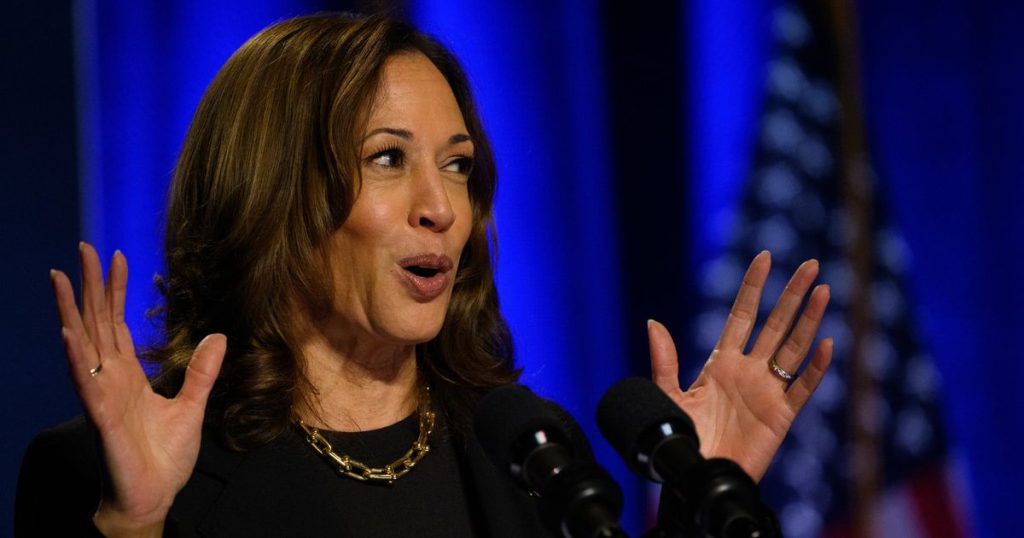The memoirs of two major-party candidates, JD Vance and Kamala Harris, shed light on a fundamental clash over changes in gender roles and family structure that is present in the current presidential campaign. Both candidates grew up with single mothers but have vastly different views on these societal shifts. Harris embraces the changes, while Vance argues for a return to traditional values. These differences play out in policy arguments on issues like abortion rights and child care.
Kamala Harris’s memoir, “The Truths We Hold,” paints a picture of a happy and carefree childhood despite her parents’ divorce. She highlights the support she received from her mother and a family friend, showcasing the importance of a strong support system. Harris’s values are reflected in her policy agenda, which focuses on enabling more people to thrive personally and professionally, even if they don’t conform to traditional gender roles and family structures. She advocates for programs and laws supporting child and elder care, paid leave, and reproductive and LGBTQ+ rights.
In contrast, JD Vance’s memoir, “Hillbilly Elegy,” reflects a difficult and tumultuous childhood marked by instability and chaos in his broken home. He credits his grandmother for his rescue, admiring her commitment to her marriage despite its challenges. Vance believes that modern society has gone wrong by straying away from traditional family values and relationships. He argues against societal changes that have transformed American family life, including the acceptance of divorce and the embracing of non-traditional family structures.
Conservatives like Vance have long been advocating for protecting traditional families and resisting societal shifts that challenge gender roles and family structures. They have opposed universal child care, the Equal Rights Amendment, and same-sex marriage, among other changes. Vance has criticized the Democratic Party for being influenced by those who promote alternative family structures, calling them “childless cat ladies.”
The stark differences in the visions of the two parties regarding family and societal norms reflect the narratives of Harris and Vance. While there is some potential for bipartisan agreement on certain issues like child care, the fundamental divide on topics like reproductive and LGBTQ+ rights prevents significant collaboration. Voters will have to decide in the upcoming election which narrative resonates more with their own experiences and beliefs.
Ultimately, the clash between Harris and Vance’s views on family and societal changes represents a broader ideological struggle within American society. Both candidates offer unique perspectives shaped by their upbringing, and their memoirs provide insights into their policy agendas and values. The choice between embracing new societal norms or reverting to traditional values will be a pivotal issue in the upcoming election, as voters weigh the implications for gender roles, family structures, and the future of American society.








